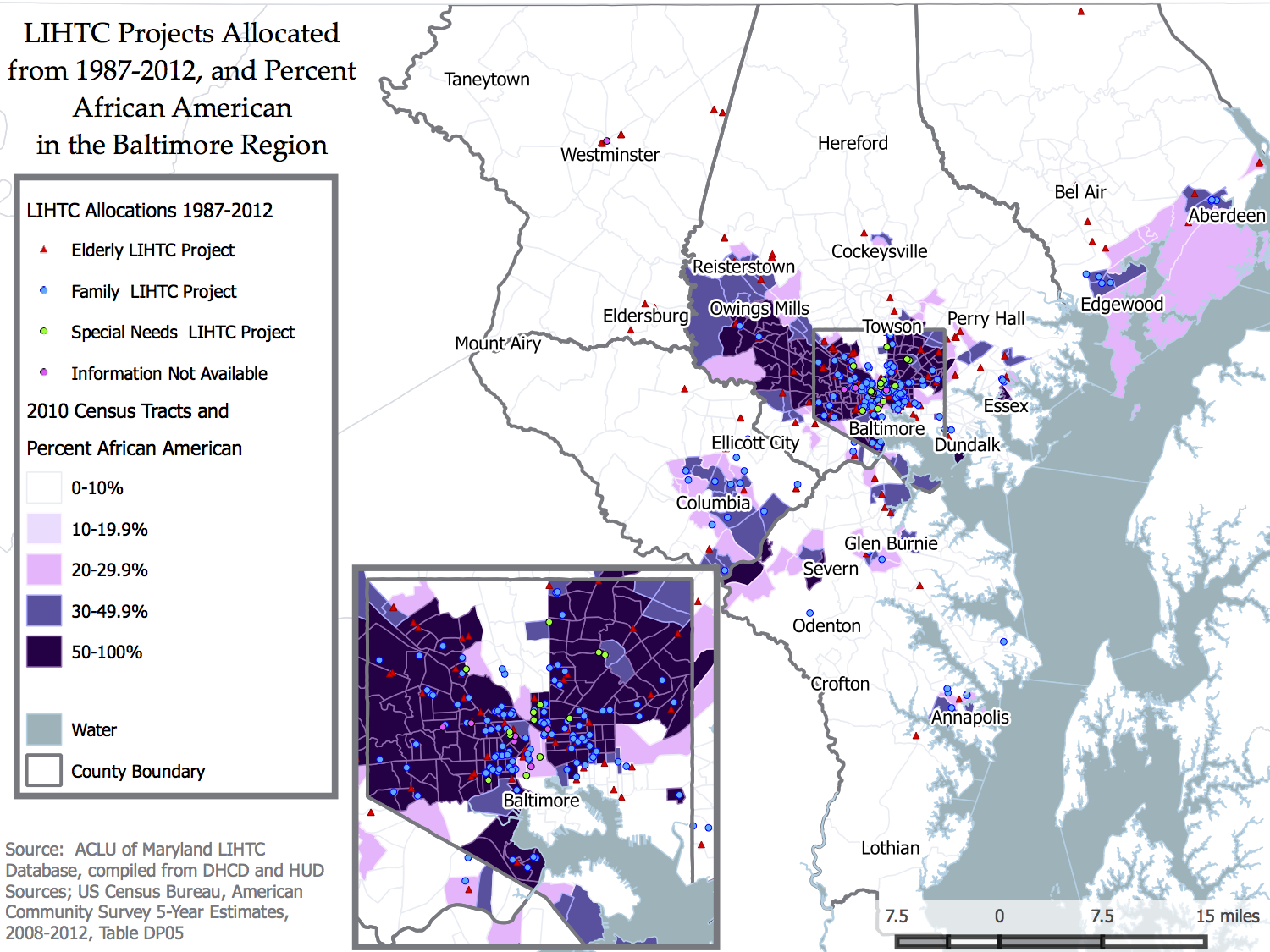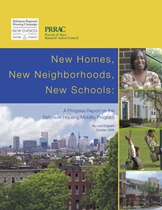Housing Mobility and Opportunity
The ACLU believes that authentic, effective community investment in redlined and segregated neighborhoods is about so much more than building affordable housing. It is important the create economically strong and diverse communities, that provide more housing affordable to low-income households. The ACLU of Maryland is working with both local and national partners to achieve this goal. More must be done in communities to eliminate racial and spatial disparities in housing, wealth and life opportunity. For example, the assisted housing occupied by Black people is nine times more likely to be located in a highly disinvested area than the assisted housing occupied by white people. Read more about the legislation, nonprofits, programs and research we have done on housing mobility.

Since 2003, an effective, opportunity-based housing voucher program has provided families with low income with new housing choices and greater mobility throughout the Baltimore Region. Through the Baltimore Housing Mobility Program over 1,500 families have voluntarily moved to quality housing in mixed-income neighborhoods with low poverty rates, quality school and access to employment and increased quality of life throughout the region.
Baltimore Regional Housing Partnership
The Baltimore Regional Housing Partnership (BRHP), a nonprofit organization, is the Regional Administrator for the Baltimore Housing Mobility Program, under contract with the Housing Authority of Baltimore City (HABC). BRHP was created as a result of the landmark civil rights case Thompson v. HUD, originally filed by the ACLU of Maryland in 1995 on behalf of Black families residing in public housing in Baltimore City. A partial consent decree in 2002 led to the mobility program’s creation, and a final settlement in 2012, negotiated by lawyers from the NAACP Legal Defense Fund and the ACLU, as well as private attorneys, provided additional vouchers and assured funding from HUD through 2027. The Baltimore Housing Mobility Program has opened pathways to a better future for over ten years. It currently provides over 3,300 families with low income expanded housing, educational, and employment options in opportunity areas across the region. In 2016, BRHP will assist several hundred additional families to move to communities of opportunity and will continue to serve an additional several hundred families per year through 2018. Eligible families that complete the housing counseling program receive a Housing Choice Voucher, high-quality housing in an opportunity area, and counseling support in their transition to their new community.
MobilityWorks is a consortium of nonprofit groups, researchers and policy experts that works to help families with low income move from disinvested neighborhoods into communities with high performing schools. We do so by teaming up with housing authorities and charities to develop regional housing mobility programs.

NEW REPORT - "New Homes, New Neighborhoods, New Schools: A Progress Report on the Baltimore Housing Mobility Program"
Read the report and learn more
Housing mobility can complement community revitalization for children with serious health challenges. (Article in the journal, "Shelterforce")
Photo Display of Conditions in Low and High Opportunity Areas; Remedial Phase Expert Report of john powell in Thompson v. HUD (August 2005)
Photo Display of Conditions in Low and High Opportunity Areas; Remedial Phase Expert Report of john powell in Thompson v. HUD (August 2005)
Stay Informed
Sign up to be the first to hear about how to take action.
By completing this form, I agree to receive occasional emails per the terms of the ACLU’s privacy statement.
By completing this form, I agree to receive occasional emails per the terms of the ACLU’s privacy statement.

